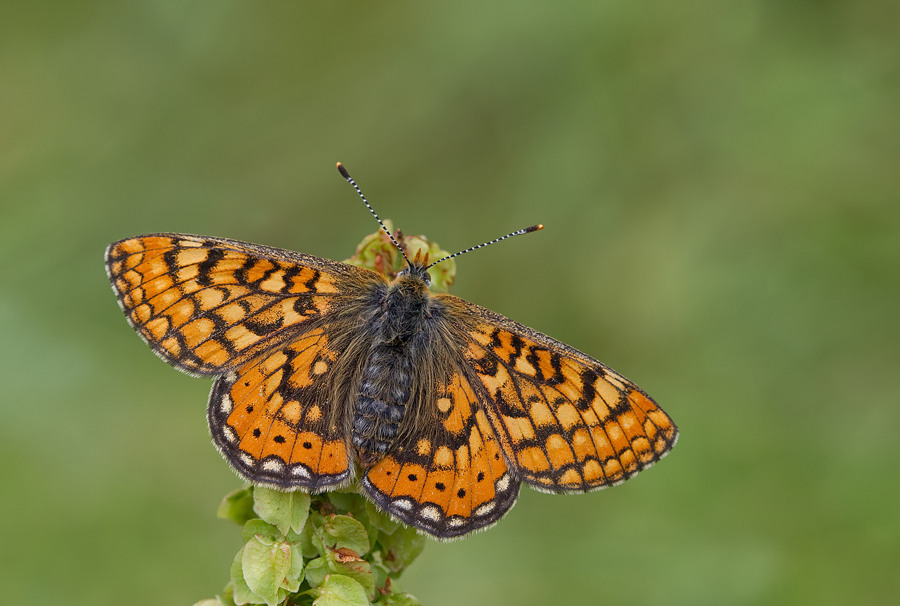Marsh Fritillary colony discovered on Cumbrian reserve
A new colony of one of Europe's rarest butterflies has been discovered at Cumbria's Campfield Marsh RSPB reserve, marking a new milestone for a reintroduction project in the county.
The initial discovery, made by volunteers at Campfield Marsh, revealed 12 Marsh Fritillaries on an area of rough wet grassland and a later visit by Cumbria Marsh Fritillary Project volunteers confirmed the sightings.
This is the first known natural re-colonisation of the species on Campfield Marsh, and the only RSPB nature reserve in England where the species is currently present. It is suspected that this colony has formed following a successful reintroduction scheme in Cumbria in 2007, led by Butterfly Conservation, Natural England and DEFRA. That year conservationists released 42,000 Marsh Fritillary larvae at four sites with the aim of bringing the species back to this area of Cumbria. It is thought that the new colony at Campfield Marsh has established itself from one of the initial nearby release sites, Finglandrigg, about 5 km away.
Once widespread throughout the UK, Marsh Fritillary declined severely during the 20th century and is now confined to the western side of Britain and Ireland. The number of colonies in Cumbria dropped from over 200 to just three in the year 2000 and, by 2004, they faced extinction in the county.

The new Marsh Fritillary colony means that Campfield Marsh is the only English RSPB reserve to hold the species (Photo: Paul Cools)
Dave Blackledge, RSPB Cumbria Coasts Reserves Warden, said: "This is what I love about nature — you can be out with volunteers surveying wildlife and stumble across a new species. People love butterflies and we want future generations to be able to enjoy the sight of them, so this new discovery is definitely a step in the right direction."
Part of the overall plan of the Cumbria Marsh Fritillary Project is to establish core colonies so the butterflies can increase in numbers in those core areas and naturally expand onto suitable habitats that they discover for themselves.
Steve Doyle of Butterfly Conservation Cumbria explained: "This is a great example of how the RSPB can help butterflies — we would have never stumbled across this remote corner otherwise. It's fantastic news that the butterflies have expanded and recolonised and hopefully the butterflies will continue to spread naturally in our four core areas of Cumbria."
The RSPB and Butterfly Conservation will continue to work together to survey the caterpillars on Campfield Marsh and ensure the habitat is suitable to support the new colonies going forward. Butterflies and moths are indicators of a healthy environment and conserving them will not only improve the whole environment for wildlife, but enrich the lives of people now and in the future.
The Big Butterfly Count begins on Friday 15 July. For more information on taking part, visit: www.bigbutterflycount.org.

